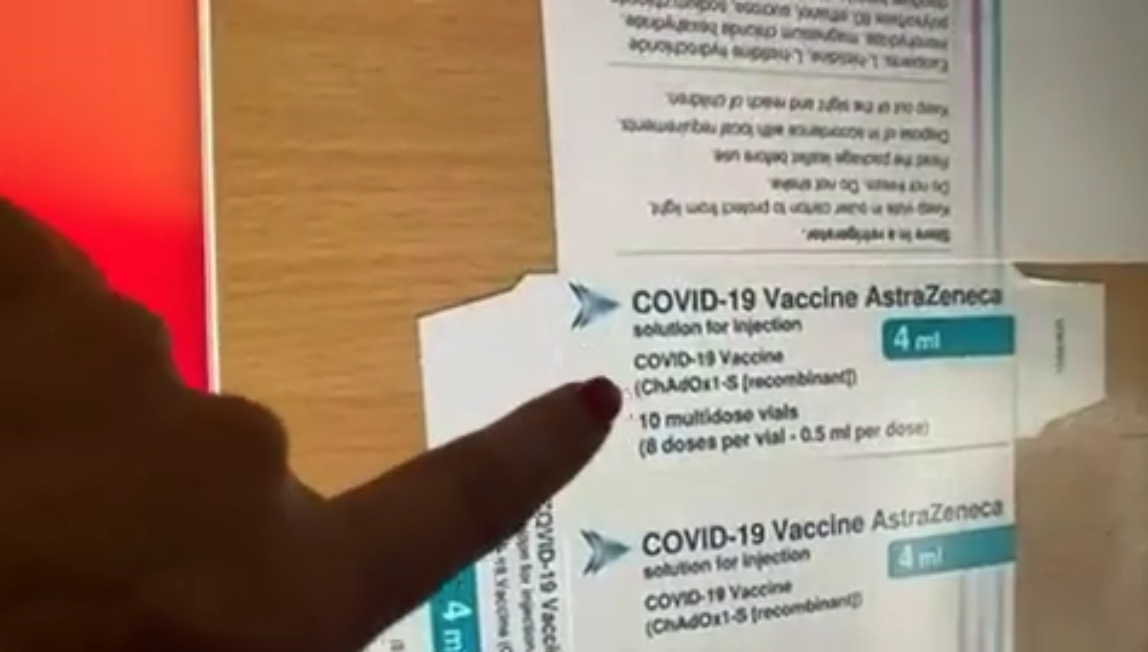Pfizer unleashed wave of turbo cancers with its COVID jabs; now the corporation is declaring cancer “our new COVID” profit stream
05/13/2024 / By Ethan Huff

Now that its Wuhan coronavirus (COVID-19) “vaccines” have had time to trigger turbo cancers in many of the victims who took them, pharmaceutical giant Pfizer is eager to start marketing new “blockbuster” cancer drugs, according to company CEO Albert Bourla.
Bourla spoke with Fox Business this past week about how Pfizer plans to score big on the new turbo cancer market. Since profits from the company’s mRNA (modRNA) COVID jabs are drying up, Bourla is ready to unleash new chemical drugs to reinvigorate the profit streams.
The “pandemic” brought record revenue to Pfizer, which generated an astounding $157 billion overall from not just its “vaccine” but also Paxlovid, an oral antiviral medication. In 2023, however, sales were down by more than half at only around $71 billion.
Since the end of 2022, Pfizer’s share price has likewise fallen by 42 percent due to a rapid decline in demand for all things COVID-related. Pfizer responded with a major cost-cutting campaign that included laying off hundreds of people at its United Kingdom and United States facilities – you didn’t think Bourla and the other executive fat cats were going to take any pay cuts, did you?
(Related: In late 2022, Bourla was found guilty of making “disgracefully misleading” statements about childhood vaccination.)
Pride comes before a fall, Bourla
Bourla lives for money, and he told Fox Business that the layoffs were part of a “very good cost containment” campaign that produced “very good results” as of early 2024.
Bourla is also convinced that Pfizer’s new focus on cancer will be extremely lucrative, enriching him and his friends with new record profits in the coming months and years.
“Oncology: it is our new COVID,” Bourla said with a smirk, giving all the credit to himself and his friends.
“We did what we did with COVID. We are very proud to have saved the world but it is behind us now. We want to do [it] once more and I think oncology is our best chance to do it.”
Just before the turn of the new year, Pfizer completed a $43 billion acquisition of Seagen (formerly known as Seattle Genetics), a biotechnology company that specializes in the development of monoclonal antibody-based drugs, also known as antibody-drug conjugates or ADCs.
“They are designed to kill tumor cells while leaving healthy tissues relatively unaffected,” is how RT described ADCs.
Adcetris is the drug that landed Seagen on the map, its uses being for the treatment of lymphoma and Hodgkin’s lymphoma. The drug costs around $11.91 for a single 50 milligram dose.
Seagen also has another drug in its portfolio called Padcev that Bourla described as showing “phenomenal performance.” Padcev is used to treat bladder cancer, and sales of it have increased by 164 percent since Pfizer acquired Seagen.
The price of Padcev is much more expensive than Adcetris, costing an astounding $4,446 for a single 30 milligram dose.
“That demonstrates how well we’ve invested the money,” Bourla said proudly, adding that in the future the Pfizer drug “will have a significant impact on cancer patients.”
Pfizer’s shift into oncology was announced in late 2023 with Bourla indicating that this is sure to bring in the cash seeing as how fearful people are about getting cancer.
“Nothing scares people all over the world more than cancer because it affects everyone,” he explained. “I hope we will be successful in our mission. I am optimistic that in the next 10 years we will see significant advancement.”
By 2030, Pfizer plans to have at least eight blockbuster cancer drugs on the market, as well as double the number of patients being treated with them – as of 2023, Pfizer is treating 2.3 million cancer patients.
The pharmaceutical industry is all about the money. Learn more at BadMedicine.news.
Sources for this article include:
Submit a correction >>
Tagged Under:
Albert Bourla, Big Pharma, cancer, COVID, covid-19, drugs, jabs, medical violence, money supply, Pfizer, pharma fraud, pharmaceuticals, science deception, turbo cancer, vaccination, vaccines
This article may contain statements that reflect the opinion of the author
RECENT NEWS & ARTICLES
VaccineDamage.News is a fact-based public education website published by Vaccine Damage News Features, LLC.
All content copyright © 2018 by Vaccine Damage News Features, LLC.
Contact Us with Tips or Corrections
All trademarks, registered trademarks and servicemarks mentioned on this site are the property of their respective owners.



















